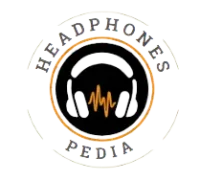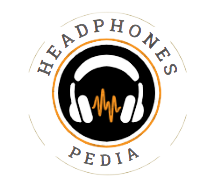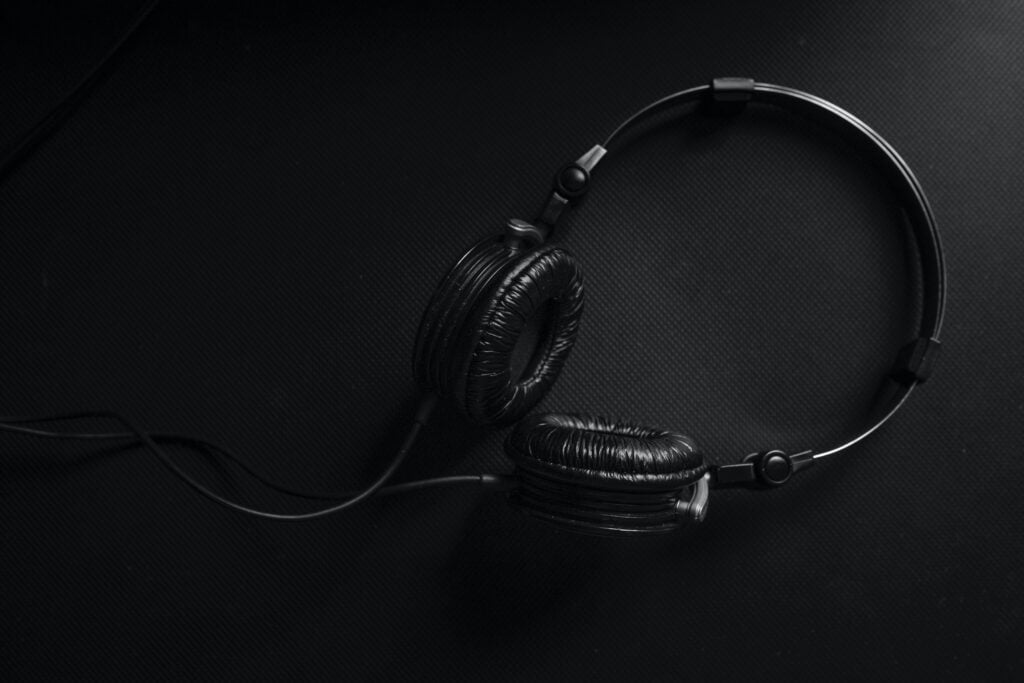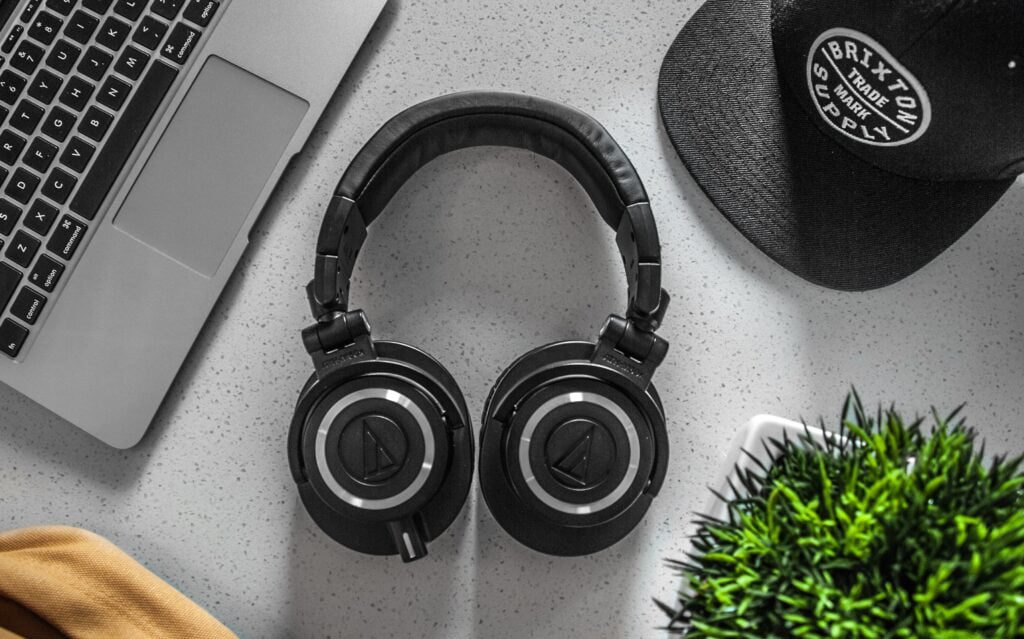Today I woke up with a bee sitting inside my ear singing the song I didn’t want to vibe on.
I bought a new pair of headphones this month and had been vibing to music at max volume busting right in my head for weeks. That ear ringing, it was a misery called on me by myself!
Can headphones cause ear ringing? Yes, they can.
First, let me tell you “What is ear ringing?”
Upon a short search, I found out that this Bee sound was called ear ringing in its milder and more acute form, which could be experienced as the sharp sound of a bell, bee singing, or bell ringing. In its severe form, this could result in a medical condition called Tinnitus. So, What could have caused it? Multiple factors cause tinnitus, and unhealthy use of headphones is one of the factors that can worsen it.
Tip: Tinnitus is pronounced as ti-NIGH-tus (in case you were struggling to pronounce it like me)

A recent update by the World Health Organization published in early 2024 says “Over 1 billion young adults are at risk of permanent, avoidable hearing loss due to unsafe listening practices.”
If you have experienced ear-ringing due to your unhealthy listening habits, I will help you shape your listening habits. Read on to learn how headphones cause ear ringing, the early signs and warnings for tinnitus, and WHO recommendations for safe listening routines.
I went down the rabbit hole to discover facts and myths about headphone use and auditory concerns, and the results of my finding that are worth sharing are highlighted throughout the text below, Welcome to the Healthy Music-Listening Choice!
What Is Tinnitus?
According to WebMD, tinnitus is a condition where an individual continuously or occasionally perceives a sound such as ringing, whistling, etc, in the absence of any external auditory stimulus.
This sound is sharp enough to put a halt to any task you are doing. Beyond this annoying sound, you are also at risk of sleep disturbance, hearing impairment, loss of attention and focus, psychological and emotional distress, and lower quality of life.
| Temporary Tinnitus | Chronic Tinnitus |
| Short-lived, temporary threshold shift (TTS) | Persistent, Frequent ear ringing |
| Disturbance might last for a few hours or a few days | Persists 6 months or longer |
| A warning sign from the auditory system urges to take an auditory rest | Intensify over time, interfering with daily life |
| Occurs after a music concert or loud music session | Doesn’t fully recover after remedial treatment |
Warning Signs of Chronic Tinnitus from Headphones
- Frequent ear ringing after loud music exposure
- Hearing sensitivity (Hyperacusis) – normal sounds feel uncomfortable and loud.
🛑 Sensitive to voices and background sounds
🛑 Ear canal often feels full or there is a continuous sense of pressure inside the ear
🛑 Everyday noises such as clinking dishes, keyboard typing, car horns, or children’s conversations, etc., seem too loud.
🛑 Inability to tolerate high-pitched sounds
🛑 Difficulty in maintaining a conversation in a noisy environment
Safe vs. Unsafe Volume Levels
My first noticeable experience of ear ringing was a buzzing sound right after the music concert. If this temporary ear buzzing is left without any precautionary measures, it leads to chronic tinnitus. My second experience led me to the WHO article, which specified the duration and volume of the article to protect my ears from damage and suffering.
| Safe | Unsafe | |
| Volume | 80dB (decibels) | >80dB (decibels) |
| Duration | up to 40 hours a week | >5hours |
Can Headphones Cause Ear Ringing?
Excessive listening to music/audio on headphones at a higher volume makes hair cells in the ear sensitive. These hair cells in the circular part of the ear (cochlea), are practically responsible for hearing ability.
Sensitive hair cells cause ear ringing. While prolonged exposure to loud music via headphones and earbuds results in the complete damage of these cells the consequence of which is auditory impairment.
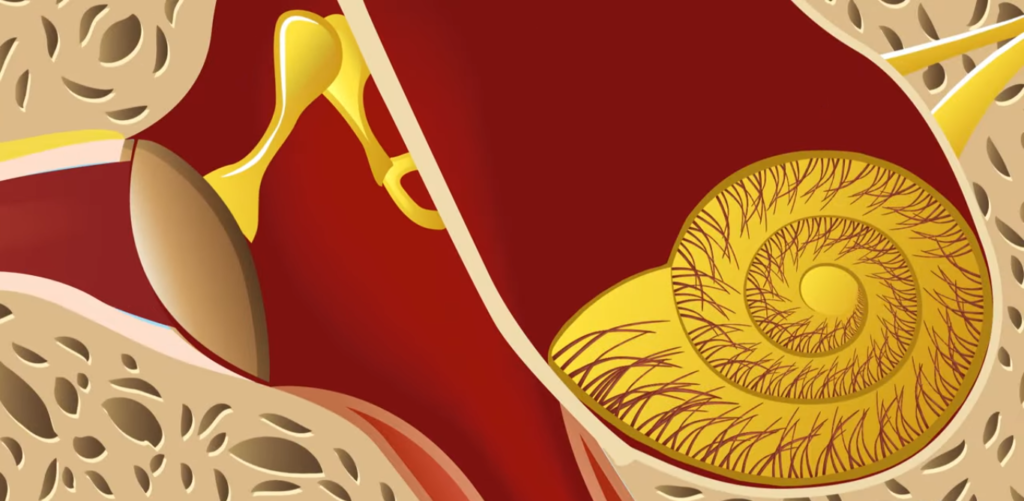
The higher volume decreases hair cells in the ear, resulting in reversible hearing impairment.
In-ear headphones and Ear Canal Pressure
In-ear headphones and earbuds fit tightly inside the ear canal. Increasing the ear canal pressure. Higher canal pressure over the period results in auditory fatigue and ear ringing.

Moderate Volume and Prolonged Duration
What happens if you turn the volume of your headphones down? Problem solved! Yes, that’s what I thought, and I proceeded to enjoy my comfort playlist. But here is another hitch! Even if the volume is moderate but you are listening for a long duration, you will experience what experts call “ear fatigue.” This auditory fatigue again leads to sensitivity and ear ringing. So, what should I do now?
Preventing Headphone-Related Tinnitus
The 60/60 rule:
Prevention of headphone-induced ear ringing starts with adjusting volume & listening habits. The use of the 60/60 rule is beneficial for reversing ear ringing. Keep the volume at 60% for 60 minutes. Followed by the below measures:
- Take regular listening breaks. Severe the ringing in your ear, the longer your break should be between listening sessions
- Keep volume under 85 db.
- Turn on your device’s volume-limiting features
- Prefer Over-ear Headphones for minimizing in-ear pressure.
- Opt for a noise-canceling headphone to reduce volume needs
- Don’t forget to use ear muffs or ear plugs in loud environments
- Seeking Medical Attention When Necessary
Important Note: Seek medical attention if the condition persists for more than 24 hours.
Conclusion
Headphones are an integral part of modern-day life with undeniable significance. But when we look at the other side of the coin we realize the risks careless use of headphones brings. Unhealthy use of headphones – prolonged listening durations at higher volume- may cause you your auditory ability. Always opt for healthy listening practices, and visit your medical facility if any auditory discomfort is present. Ringing, buzzing, and sensitivity to sound don’t ignore your ears’ cry for help. Your ears are not invincible, protect them!
Frequently Asked Questions
How long does ear ringing last after using headphones?
Usually, ears recover from ear-ringing after 2 to three hours if auditory rest is ensured right after using headphones. Take listening breaks, and practice the 60/60 rule of music listening to avoid ear ringing altogether.
What volume is safe for headphones?
The safe volume of headphones recommended by the World Health Organization under the Safe Listening Initiative is 85db for 40 hours per week.
Can noise-canceling headphones prevent tinnitus?
Yes, noise-canceling headphones prevent tinnitus resulting from listening to loud music on headphones to avoid background music. Noise-canceling headphones present background music and the user can listen to audio on a safe volume.

I am Michael a Texas-based recording engineer and sound enthusiast. I contribute to Headphones Pedia’s efforts to educate readers about intriguing new devices and other audio-related issues by drawing on their experience working on several sound projects. I also use AI tools to assist with content creation.
